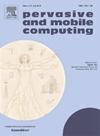基于区块链技术的联邦学习选择与激励系统
IF 3.5
3区 计算机科学
Q2 COMPUTER SCIENCE, INFORMATION SYSTEMS
引用次数: 0
摘要
机器学习算法是强大的工具,用于分析具有近似等于预测器数量的多个观察值的数据。然而,在分布式场景的分析和挖掘过程中,数据所有者的隐私可能会暴露出来。今天,联邦学习被用作协作模型训练的最佳范例,而不会泄露数据所有者的隐私。不幸的是,需要提供有效的客户选择和激励机制,以鼓励对受限和非受限设备进行数据共享和分析。此外,还必须考虑对系统的信任。为此,本研究提出了一种基于联邦区块链的联邦学习系统激励与选择机制。使用支持向量机(SVM)选择客户端,并通过递归特征消除(RFE)提高支持向量机的精度。利用深度Q强化学习为客户协同学习提供实时激励,并利用马尔可夫决策过程(MDP)框架推导出最优激励分配策略。对于矿工的选择,使用16轮加法博弈提出效用共识证明。进行了大量的仿真来评估所提出的系统模型的效率。所建议系统的性能分别由其最优统计效用、系统效用和客户效用决定。实验结果表明,本文提出的SVM-RFE模型优于现有算法。此外,还进行了安全性分析,表明该系统对后台知识攻击是安全的。本文章由计算机程序翻译,如有差异,请以英文原文为准。
A federated learning-based selection and incentive system using blockchain technology
Machine learning algorithms are powerful tools for analyzing data with several observations approximately equal to the number of predictors. However, the privacy of data owners may be revealed during the processes of analysis and mining in a distributed scenario. Today, federated learning is employed as the best paradigm for collaborative model training without disclosing the privacy of the data owners. Unfortunately, efficient client selection and incentive mechanisms need to provide for encouraging data sharing and analysis for constrained and non-constrained devices. Furthermore, trust in the system must be considered. To this end, this study proposes a federated blockchain-based incentive and selection mechanism for a federated learning system. Clients are selected using support vector machines (SVM), while the accuracy of SVM is improved by recursive feature elimination (RFE). A real-time incentive is provided to clients for collaborative learning using deep Q reinforcement learning, and an optimal incentive allocation policy is derived using the Markov decision process (MDP) framework. For miners’ selection, a proof of utility consensus is proposed using a sixteen-round addition game. Extensive simulations are conducted to evaluate the efficiency of the proposed system model. The performance of the proposed system is determined by its optimal statistical utility, system utility, and client utility, respectively. From the experimental results, the proposed SVM-RFE model outperform the existing algorithms. Additionally, security analysis is performed, which shows that the proposed system is safe against background knowledge attacks.
求助全文
通过发布文献求助,成功后即可免费获取论文全文。
去求助
来源期刊

Pervasive and Mobile Computing
COMPUTER SCIENCE, INFORMATION SYSTEMS-TELECOMMUNICATIONS
CiteScore
7.70
自引率
2.30%
发文量
80
审稿时长
68 days
期刊介绍:
As envisioned by Mark Weiser as early as 1991, pervasive computing systems and services have truly become integral parts of our daily lives. Tremendous developments in a multitude of technologies ranging from personalized and embedded smart devices (e.g., smartphones, sensors, wearables, IoTs, etc.) to ubiquitous connectivity, via a variety of wireless mobile communications and cognitive networking infrastructures, to advanced computing techniques (including edge, fog and cloud) and user-friendly middleware services and platforms have significantly contributed to the unprecedented advances in pervasive and mobile computing. Cutting-edge applications and paradigms have evolved, such as cyber-physical systems and smart environments (e.g., smart city, smart energy, smart transportation, smart healthcare, etc.) that also involve human in the loop through social interactions and participatory and/or mobile crowd sensing, for example. The goal of pervasive computing systems is to improve human experience and quality of life, without explicit awareness of the underlying communications and computing technologies.
The Pervasive and Mobile Computing Journal (PMC) is a high-impact, peer-reviewed technical journal that publishes high-quality scientific articles spanning theory and practice, and covering all aspects of pervasive and mobile computing and systems.
 求助内容:
求助内容: 应助结果提醒方式:
应助结果提醒方式:


